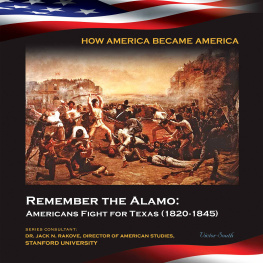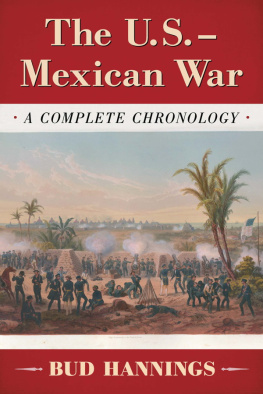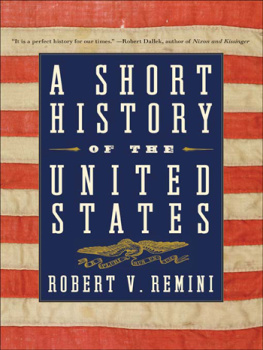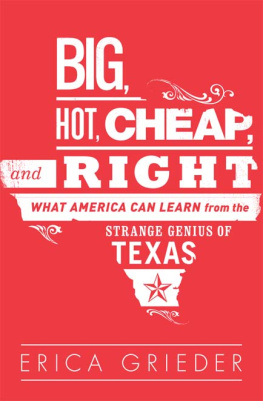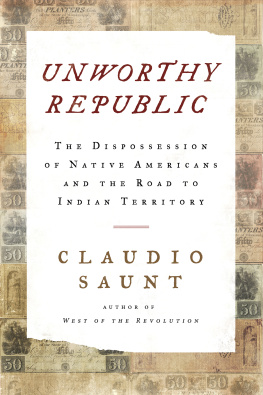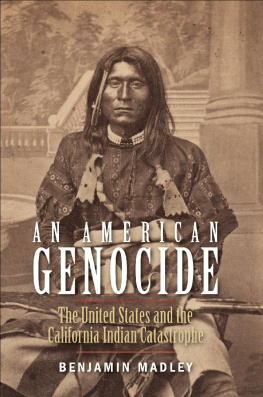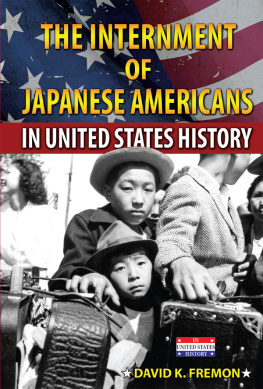Breakaway Americas
Published in Cooperation with the
WILLIAM P. CLEMENTS CENTER FOR SOUTHWEST STUDIES
Southern Methodist University
BREAKAWAY AMERICAS
THE UNMANIFEST FUTURE OF THE JACKSONIAN UNITED STATES
Thomas Richards, Jr.

2020 Johns Hopkins University Press
All rights reserved. Published 2020
Printed in the United States of America on acid-free paper
2 4 6 8 9 7 5 3 1
Johns Hopkins University Press
2715 North Charles Street
Baltimore, Maryland 21218-4363
www.press.jhu.edu
Library of Congress Cataloging-in-Publication Data
Names: Richards, Thomas, Jr., 1993 author.
Title: Breakaway Americas : the unmanifest future of the Jacksonian United States / Thomas Richards, Jr.
Description: Baltimore : Johns Hopkins University Press, 2020. | Includes bibliographical references and index.
Identifiers: LCCN 2019023256 | ISBN 9781421437132 (hardcover) | ISBN 9781421437149 (ebook)
Subjects: LCSH: Separatist movementsHistory19th century. | United StatesHistoryAutonomy and independence movements. | United StatesHistory19th century. | United StatesPolitics and government19th century.
Classification: LCC E337.5 .R53 2020 | DDC 973.5dc23
LC record available at https://lccn.loc.gov/2019023256
A catalog record for this book is available from the British Library.
This material is neither made, provided, approved, nor endorsed by Intellectual Reserve, Inc., or the Church of Jesus Christ of Latter-day Saints. Any content or opinions expressed, implied, or included in or with the material are solely those of the owner and not those of Intellectual Reserve, Inc., or the Church of Jesus Christ of Latter-day Saints.
Special discounts are available for bulk purchases of this book. For more information, please contact Special Sales at .
Johns Hopkins University Press uses environmentally friendly book materials, including recycled text paper that is composed of at least 30 percent post-consumer waste, whenever possible.
For Jill

Breakaway Americas, 18351848. Map by Bill Nelson.

Territorial gains by the United States, 18451848. Map by Bill Nelson.

North America, circa 1840, with some select later locations and overland trails. Areas under Native and non-Native control are approximations since these borders were constantly fluctuating. Map by Bill Nelson.
Acknowledgments
This book could not have been written without the immeasurable support and generosity of countless people. It began as a dissertation at Temple University under the tutelage of my adviser Drew Isenberg. Drew first cultivated my interest in the American West, andperhaps more importantin the spring of 2012, Drew decided that he would consider Upper Canada part of the West and allow me to write a research paper on the Patriot invaders of Canada for his American West seminar. This book began with that paper. More generally, Drews valuable advice and guidance have shaped this project at every turn, and this book could not have been written without him. While Drew is not always right (e.g., he does not believe Philadelphia is the greatest city in the world), he was pretty much always right in his suggestions for this project. Thank you for everything, Drew.
It also could not have been written without the unfailing support of David Waldstreicher, my first adviser at Temple, who remained an unofficial adviser throughout the project. I first went to Temple to write about the politics of the American Revolution with David. When I told him I was thinking about writing instead about the Jacksonian West, he never questioned my drastic shift in focus but rather continued to provide unshakable encouragement. He was constantly open to new ideas, and he too was pretty much right about everything when it came to this project. I continue to relish our marathon breakfasts at the deli, and I continue to appreciate his enthusiasm for all facets of early American history (although not his enthusiasm for the Mets). Thank you for everything, David.
Many others at Temple shaped this project at various stages. In particular, Travis Glasson read multiple drafts and gave impeccable feedback, and he always provided a sense of calm in the chaos that often is the life of a grad student. Jessica Roneys pointed critiques were invaluable, as have been our continued conversations in recent years in the hallways of various conferences and in the McNeil Center reception area. I workshopped two chapters at her Temple Early American seminar, and both became much better because of it. At these seminars many scholars, especially Alexandre Caillot and Monica Hahn, provided valuable feedback. I wrote what became the second chapter for this book in Jon Wellss research seminar; his advice on writing and research techniques was refreshingly practical and continues to be useful. I also worked through many of my ideas in the classes of Harvey Neptune, Gregory Urwin, and Petra Goedde, and they all shaped this project in beneficial ways. Vangie Campbell and the late Pat Williams alleviated administrative headaches and provided a breath of proverbial fresh air in the cement confines of Gladfelter Hall. My grad cohort at Temple, in particular Jess Bird, Tom Reinstein, Grant Scribner, Seth Tannenbaum, and John Worsencroft, made it enjoyable to come to campus on a daily basis. Although they studied current events (the twentieth century) and not what they called ancient history (the nineteenth century), they were always there, offering advice and support. Steve Hausmann and I had terrific conversations about the American West. In retrospect, our twelve hours at the Minneapolis airport was time well spent. Catherine Murray was always able to pick me up with words of encouragement. Brenna Holland remains a close friend who is wise beyond her years; she really should appear in multiple sections of these acknowledgments. Finally, David Thomas was essentially my fellow muse at Temple. We had similar research interests, we liked similar books, and we were annoyed with similar historiographic trends. Some of the best advice I got on this project came from David in our car rides from East Falls to North Philadelphia, and while David hails from Ohio by way of Tennessee by way of Seattle, I consider him a fellow Philadelphian at heart (which, to him, is a compliment).
I wrote much of this book while on a yearlong fellowship at the McNeil Center for Early American Studies at the University of Pennsylvania. There, my scholarship truly progressed. I offer thanks to the incomparable Dan Richter, whose deep and wide historical knowledge, valuable advice, generosity, gregariousness, ties, and puns made the year a remarkable one. Amy Baxter-Bellamy and Barbara Natello made things come together on a daily basis. Much appreciation to the many attendees of my McNeil seminar at the Historical Society of Pennsylvania. Thanks also to my fellow fellows who read parts of this work and often pushed me out of my comfort zone in helpful and meaningful ways: Dee Andrews, Jessica Blake, Dan Couch, Lori Daggar, Elizabeth Eager, Liz Ellis, Rachel Engl, Alexandra Finley, Nicholas Gliserman, Sarah Gronningsater, Andrew Inchiosa, Christopher Jones, Lauren Kimball, Alex Manevitz, Don James McLaughlin, Alexandra Montgomery, Tony Perry, Gabriel Rocha, and Laura Soderberg. Three individuals deserve particular mention: Kevin Waite and I always had terrific discussions about western history. Maxime Dagenais was (and is) my go-to connection for all things CanadaCanadian history, Canadian historians, Canadian historiography, poutine, Montreal bagels, hockey, and bad weather. Rachel Walker was the best officemateand fellow cynicI could have had, and our daily conversations made this book so much better and my days at work so much more entertaining.
Next page

